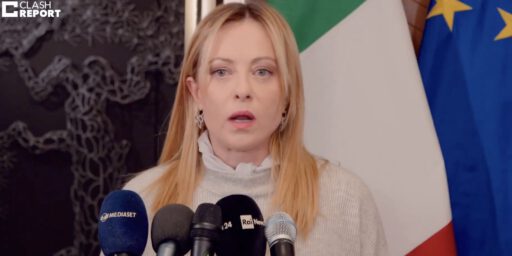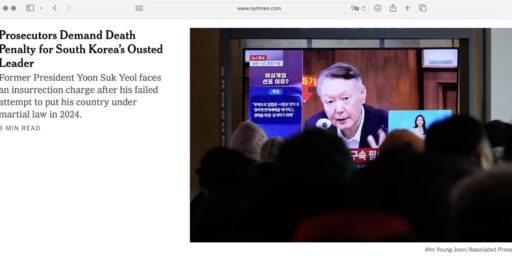パレスチナ・イスラエル友人関係の象徴:エドワード・サイードとダニエル・バレンボイムのウェスト=イースタン・ディヴァン管弦楽団 Symbol of Palestinian-Israeli Friendship: Edward Said and Daniel Barenboim's West-Eastern Divan Orchestra
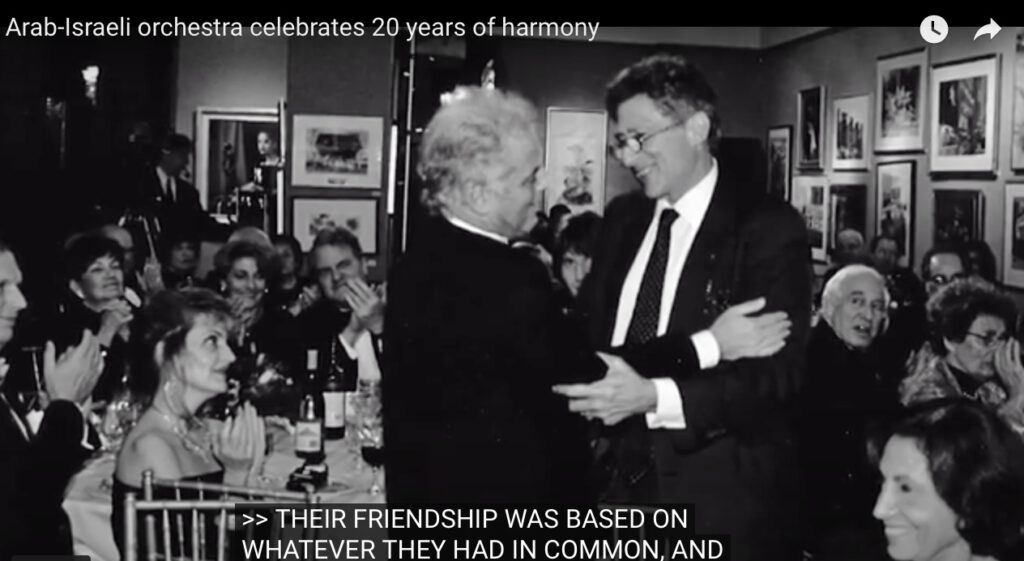
Daniel Barenboim and the West-Eastern Divan Orchestra: Music that crosses divides
Happy 80th birthday greetings to Daniel Barenboim from Japan!
May you stay in best health conditions, as we would like to experience more of your creativity and humanistic engagements!
Respect for the success of the West-Eastern Divan Orchestra! Edward Said would be more than happy to see its progress and influence.
Your life is full of symbolisms. I would like to share your voice with my Japanese readers, so they understand history with all its complexity.
Tokyo, 2022/11/15
Mario A
What gives me hope? Music-making. Because, before a Beethoven symphony, Mozart’s Don Giovanni or Wagner’s Tristan and Isolde, all human beings are equal.
60 Years: Daniel Barenboim on Israel
There are photographs hanging on the walls of my dressing room in the Staatsoper Berlin, photographs that remind me of what I see when I look out the windows of my house in Jerusalem. They are slightly faded and here and there the paper is crumbling, but one can easily recognize the views. The old city, the Dome of the Rock with its shining cupola, the walls, the gates. Sometimes I sit in this room before a performance, looking at these pictures and thinking of Jerusalem, of Israel, my home. Before 1989, this room was supposedly a refuge of the East German Stasi, the state police; if I happened to be a sentimental person, that fact would surely help me to become unsentimental, but I am not a sentimental person. The situation in the Middle East is much too close to me, much too personal for me to be sentimental about it.
Since 1952 I have owned an Israeli passport. Since I was fifteen years old, I have traveled the world as a musician. I have lived in London and in Paris and I commuted for years between Chicago and Berlin. Before I had an Israeli passport, I had an Argentinean one; later I acquired a Spanish one. And in 2007, I became the only Israeli in the world who can also show a Palestinian passport at an Israeli border crossing. I am, so to speak, living evidence of the fact that only a pragmatic two-state solution (or better yet, absurd as it sounds, a federation of three states: Israel, Palestine and Jordan) can bring peace to the region. My answer to those who say I am naïve, only an artist? That I am not a political person, even if I shook the hands of Ben-Gurion and Shimon Peres as a child: not politics, but humanity has always concerned me. In that sense I feel able and, as an artist, especially qualified to analyze the situation.
Both my paternal and maternal grandparents were Russian Jews who fled to Buenos Aires in the Pogroms of 1904. Unfortunately, I never asked my parents much about our family’s history. For one thing, as a child, I was very preoccupied with myself and for another, it was “normal” that we were in a state of permanent change. The story of my maternal grandparents, however, is a very special one. When they arrived in the harbor of Buenos Aires (he was 16, she 14) after the miserably long trip, it was announced that only families would be allowed to disembark; the quota for all others had been exhausted. They were both alone, and my grandfather took my grandmother and said, “let’s get married!” And they did. Once on land, they went their separate ways. After two or three years they met again by coincidence, fell in love and spent the rest of their lives with one another.
This grandmother was a fervent Zionist. Already in 1929, she went to Palestine for half a year with her three daughters—including my 17-year-old mother—to see if one could live there. My father’s family, on the other hand, had completely assimilated; the “Holy Land” had no significance for them, at least not until they discovered that I was musically talented. Suddenly it seemed important to my parents that I, as a future artist, should grow up as part of a majority and not as part of a minority somewhere in the Diaspora. The conviction that normality would be a fundamental element of my intellectual development was, so to speak, fuel for the fire of my grandmother’s Zionism: the Barenboim family resolved to emigrate to Israel.
Our first stop on the long journey was Salzburg, where I participated in the final concert of conductor Igor Markewitsch’s summer master class. The entire trip took 52 hours with stops in Montevideo, Rio, Sao Paulo, Recife, the Isla del Sol, Madrid—and then we took the train from Rome to Salzburg. As a nine-year-old I spoke only Spanish and a bit of Yiddish, which I had learned from my grandmother. This was not especially problematic as we did not plan to stay in Austria, and I would be mostly in the company of musicians. While I had not been aware of any Jewish problem in Buenos Aires, I began to take notice of one in Salzburg. Jewish friends took me along to Badgastein one day to a great waterfall and told me that, during the Nazi era, Jews had been thrown into it. Here I received my first inkling of the fate of the Jewish people; the stories my parents had told me about the Holocaust also deeply disturbed me, although I was unable to fully understand them at the time.
In December 1952 we reached Israel. It was winter, the school year had started long before, and I had to learn a new alphabet and a new language. It was anything but easy, but since I was an uncomplicated and extroverted child, I adapted quickly, and it was the beginning of a wonderful and very intense new life. Everything was on the verge of change and progress. Imagine—in the streets of Tel Aviv, of all places, I learned to play football! Later on I became part of a youth movement and I still remember how much we looked down upon young men with moustaches and girls who wore lipstick; we felt they were superficial, simply not of the essence.
Because my family had no money, we were supported in the beginning by an uncle from Brazil. His daughter is now the Brazilian ambassador to Slovenia—at least one Barenboim got somewhere …. As for the name, my family was encouraged to translate it into Hebrew in the new spirit of Jewish-Israeli self-confidence. Ben-Gurion, for one, whom I vastly admired as a statesman and visionary, came from the Polish city of Plonsk and was originally called David Grün. It was he who tried to convince my parents that I would never become famous with the name Barenboim (the Yiddish version of Birnbaum, pear tree); he felt that Agassi, the Hebrew word for pear, would be much better. One could always think I might be Italian. None of us, though, was truly enthusiastic about this idea.
Strictly speaking, the length of time that I have spent in Israel is not substantial. It was mainly restricted to the years between 1952 and 1954 and between 1956 and the early Sixties. When I was not in school, I was on concert tours in Zurich, Amsterdam or Bournemouth. In the winter of 1954 I went to Paris to study counterpoint and composition with the famous and famously strict Nadia Boulanger for one and a half years. She taught me that the ideal musician should think with the heart and feel with the intellect. My parents accompanied me on all my travels, being of the opinion that it was necessary for me to have the most “normal” family life possible.
The Europe of the Fifties was deeply scarred by the consequences of the war. Being a traveler between both worlds, I found the contrast between Europe and Israel especially stark. Israel was at the time the most social, idealistic state imaginable. It was lucky for Israel and for us that we were young at the same time. Nobody had the feeling of working “for the State,” because there was no such thing. The state literally evolved before our eyes and fed on our idealism, our daily commitment, our work. To live in Israel as a Jew meant no longer pursuing only the so-called free professions as in the Diaspora (artist, lawyer, doctor, banker), but also becoming farmers, police officers, soldiers or, as the case may be, even criminals. State and home, home and state melded into one unit.
The Israeli left wing, the workers’ party, was in power until 1977, an often forgotten fact. Twenty-nine years. Why was this so? The traditionalists had no chance after the War of Independence in 1948; the war had already been won. The religious Jews were still waiting for the Messiah. That left the Socialists. Only after the Six-Day War of 1967 did the winds change. The idea of a “grassroots-Israel” paled. Suddenly there was cheaper labor from the Palestinian territories and not much later, the first Israeli millionaires appeared. The socialist system lost its balance; the idea of Israel teetered.
I grew up in Israel with European culture and values; the director of my high school was an art historian, the kind of woman one might find in Berlin-Dahlem. This suited me very well, because in my rebellious adolescent phase I wanted to have nothing to do with Argentina, the Spanish language, or anything from the Diaspora. For me this was all history. What counted was Israel’s present and future. At the age of 19 or 20, I was called to do my compulsory service in the Argentinean military. I was able to postpone it twice, finally arguing that I should be exempt because I was a citizen of Israel. The result was that I could go anywhere with my Argentinean passport except to Israel, and that I could go anywhere with my Israeli passport except to Argentina.
In 1966 I met the cellist Jacqueline du Pré in London. We felt immediately attracted to one another, both personally and musically, and two or three months later, we decided to get married. Without any influence on my part, Jacqueline took it upon herself to convert to Judaism. The thought of eventually having children played a role in her decision, as well as the fact that she knew many great musicians who were Jewish. Her conversion was not always a boon to her career; one read and heard that she had joined the “Jewish music mafia.” In June 1967 we got married in Jerusalem, shortly after the Six-Day War. Ben-Gurion, who did not think much of music, was present at our wedding. He was impressed that a non-Jewish, English girl could identify with his country so strongly. On 31 May, when the war had seemed inevitable, we had flown to Israel with one of the last passenger planes. We had given concerts almost every evening. The last one took place on 5 June in Beersheba, a town halfway between Tel Aviv and the Egyptian border. As we were leaving the concert to drive home, the first tanks began to come toward us.
After 1967 Israel turned very much toward the United States—not necessarily to its own advantage. The traditionalists said, “we will not give up the newly occupied territories.” The religious Jews said, “these are not occupied but liberated, biblical territories.” And with that the end of Socialism in Israel was sealed. Since then the conflict in the Middle East has been instrumentalized by world politics. For decades we have seen headlines about exploding violence; one war and terrorist act follows another. This has cemented the situation in people’s minds. Today, in the times of Iraq and Iran, one hardly reads anything more about it, which is even worse. Many Israelis dream that when they wake up, the Palestinians will be gone, and the Palestinians dream that when they wake up, the Israelis will be gone. Both sides can no longer differentiate between dream and reality, and this is the psychological core of the problem.
Since the Sixties I have no longer felt comfortable in Israel. Of course it is my home; my parents lived there and are both buried in Jerusalem. Whenever there was war in Israel, I played there: 1956, 1967, 1973. Music was my language, my “weapon.” However, after the black September of 1970, Golda Meir said, what is this talk of the Palestinians? We are the Palestinian people! At that point it clicked in my mind: this was morally unacceptable. Yes, the Jews had a right to their own state, and they had a right to this state. This demand was made even stronger by the Holocaust and the guilt of the Europeans after 1945. It is all too easily forgotten, however, that there was a moderate Zionism, there were people like Martin Buber who said from the beginning that the right to a Jewish state must be made acceptable to the existent population, the non-Jews. Militant Zionism, on the other hand, did not develop any further in its thinking. Even today, it is still based on a lie: that the land that the Jews settled was empty.
Today, many Israelis have no idea what it must feel like to be Palestinian—how it is to live in a city like Nablus, a prison for 180.000 people. There are no restaurants there, no cafés, no cinemas. What has become of the famous Jewish intellect here? I am not even speaking of justice or love. Why does one continue to feed the hate in the Gaza strip? There will never be a military solution. Two peoples are fighting over one and the same land. No matter how strong Israel becomes, there will always be insecurity and fear. The conflict is eating away at itself and at the Jewish soul, and it has been allowed to do so. We wanted to own land that had never belonged to Jews and built settlements there. The Palestinians see this as imperialistic provocation, and rightly so. Their resistance is absolutely understandable—not the means they use to this end, not the violence nor the wanton inhumanity—but their “no.”
We Israelis must finally find the courage to not react to this violence, the courage to stand by our history. The Palestinians cannot expect that we should have been able to take care of anyone besides ourselves after the Holocaust; we had to survive. Now that we have done so, we must both look forward collectively. The Israeli Prime Minister who can do this has not yet been born. Essentially, we are no further today than we were in 1947, when the United Nations voted to divide Palestine. Worse yet: in 1947 one could still imagine a bi-national state; sixty years later, this seems unthinkable. Today, people in Israel speak of separation, of divorce in respect to a two-state solution: what cynicism! Divorce is normally only possible between people who once loved each other…
I suffer from this situation, and everything I do has something to do with this suffering, whether I am conducting Wagner in Israel (and I was by no means the first to do so!), citing the Israeli constitution in the Knesset, founding the West-Eastern Divan Orchestra with the writer Edward Said, establishing a music kindergarten in Berlin, or—as recently in Jerusalem—performing a concert for two peoples. Some of these things are undeservedly exaggerated by the media, but I do as I do because it drives me crazy to see how much injustice we Jews commit daily, and how much we endanger the future existence of Israel. As cynical as it sounds, I am glad to have been born in 1942 and not in 1972. As it is, hopefully I will not live to see the day when it becomes possible that the State of Israel might no longer exist, just as I will no longer live to see the day when perhaps classical music may no longer play a role in our thinking and feeling.
I have not lived in Israel for many years now, and I am very conscious of my outsider’s perspective. Sometimes people ask me, “what is a Jew?” The answer is the following: a Jew who has anti-Semitic experiences in Berlin in 2008 is different from the Jew who had anti-Semitic experiences in 1940. The Jew of 1940 felt threatened; the Jew of today can think of his own land, of Israel. Today I can say, “either you learn to deal with me, you anti-Semite, or we go our separate ways, period.” That makes an existential difference. I am a short-term pessimist about the Middle East, but a long-term optimist. Either we will find a way to live with each other or we will kill each other. What gives me hope? Music-making. Because, before a Beethoven symphony, Mozart’s Don Giovanni or Wagner’s Tristan and Isolde, all human beings are equal.
https://danielbarenboim.com/60-years-daniel-barenboim-on-israel/
up-date 2023/1/9
Tausende protestieren gegen neue Regierung in Israel
up-date 2023/1/15
NETANJAHU-REGIERUNG : Zehntausende demonstrieren gegen Israels geplante Justizreform
14.01.2023
Die erst kürzlich in Israel vereidigte Netanjahu-Regierung plant, mit einer Justizreform die Rechte des Höchsten Gerichtes zu beschneiden. Gegner der Pläne sehen darin eine Bedrohung für die Demokratie.
Zehntausende Menschen haben am Samstagabend in der israelischen Küstenstadt Tel Aviv gegen die Rechtsregierung von Benjamin Netanjahu demonstriert. Die Proteste richten sich vor allem gegen Pläne des Justizministers Jariv Levin, das Justizsystem im Land gezielt zu schwächen. Es war die bisher größte Demonstration gegen die neue Regierung, die Ende Dezember vereidigt worden war. Auch in Haifa und Jerusalem fanden Proteste statt.
Die Großkundgebung in Tel Aviv, an der nach Medienberichten rund 80.000 Menschen teilnahmen, begann im Stadtzentrum auf dem Platz vor dem Nationaltheater Habima. Anschließend zogen die Demonstranten durch die Straßen und schwenkten dabei blau-weiße israelische Flaggen. „Demokratie“, skandierten sie dabei immer wieder. „Der Staat ist nicht euer Spielzeug“, stand auf einem Plakat.
Netanjahus Regierung plant weitreichende Reformen im Justizsystem. Eine Mehrheit im Parlament soll demnach ein Gesetz verabschieden können, auch wenn es nach Ansicht des Höchsten Gerichts gegen das Grundgesetz verstößt. Justizminister Levin will außerdem die Zusammensetzung des Gremiums zur Ernennung von Richtern ändern. Er wirft dem Höchsten Gericht etwa eine übermäßige Einmischung in politische Entscheidungen vor.
Vorsitzende des Höchsten Gerichts: Reform wäre „tödlicher Schlag“
Die Vorsitzende des Höchsten Gerichts in Israel, Esther Chajut, hatte am Donnerstag in einer ungewöhnlich scharf formulierten Ansprache vor einem „tödlichen Schlag“ gegen die Unabhängigkeit der Richter gewarnt. Nach den geplanten Reformen wäre die demokratische Identität des Landes vollkommen entstellt, sagte sie. Levin warf Chajut daraufhin vor, sie stehe auf der Seite der Opposition.
Israels rechtsextremer Polizeiminister, Itamar Ben-Gvir, hatte zu Wochenbeginn ein hartes Vorgehen gegen Demonstrantinnen und Demonstranten angekündigt.
Die Regierung des wiedergewählten Ministerpräsidenten Benjamin Netanjahu ist die am weitesten rechts stehende Regierung, die Israel je hatte. Erstmals sind darin auch rechtsextreme Politiker vertreten.
https://www.faz.net/aktuell/politik/ausland/israel-grossdemonstration-gegen-netanjahu-und-dessen-justizreform-18603107.html
2023/2/28 up-date
ISRAELISCH-PALÄSTINENSISCHER KONFLIKT
Mit den Siedlern ist kein Frieden möglich
EIN KOMMENTAR VON RAINER HERMANN 28.02.2023
Für einen Frieden zwischen Israel und den Palästinensern bedarf es beider Seiten. Radikalfanatische Siedler zeigen nun mit der Brandschatzung einer palästinensischen Kleinstadt, dass sie daran kein Interesse haben.
Die Unterschriften unter eine israelisch-palästinensische Absichtserklärung, die beide Seiten im jordanischen Aqaba unterzeichnet hatten, war noch nicht trocken, da war sie bereits Makulatur. Nach Wochen, in denen seit der Bildung einer aus Hardlinern zusammengesetzten israelischen Regierung die Spannungen zugenommen hatten, wollten sich Israelis wie Palästinenser dazu verpflichten, zu deeskalieren.
Erst dämpfte aber Ministerpräsident Netanjahu mit seiner Erklärung die Hoffnungen, dass er keineswegs einem Einfrieren des Siedlungsbaus um sechs Monate zugestimmt habe. Dann brandschatzten jüdische Siedler im Westjordanland als Rache für die Tötung von zwei ihrer Mitglieder eine palästinensische Gemeinde, die nahezu vollständig von israelischen „Siedlungen“ eingeschnürt ist.
Siedlungen verstoßen gegen das Völkerrecht
Für einen Frieden bedarf es der Bereitschaft beider Seiten. Frieden kann es nicht geben, solange den radikalfanatischen Siedlern kein Einhalt geboten wird und sie den Palästinensern immer mehr Existenzgrundlage entziehen. Netanjahu hat eben erst mehr als weitere 7000 Wohneinheiten im Westjordanland genehmigt. Sie verstoßen gegen das Völkerrecht, was die sogenannten Siedler zu Besatzern macht.
Wenn die Palästinenser darauf mit Gewalt antworten, werden sie als Terroristen verfolgt. Jetzt muss sich die israelische Justiz daran messen lassen, ob sie die brandschatzenden Siedler auch als solche behandelt.
https://www.faz.net/aktuell/politik/ausland/israel-und-palaestina-mit-den-siedlern-ist-kein-frieden-moeglich-18710004.html#void
Up-date 2023-11-2
robert.habeck
Hamas’ terror attack on Israel is now nearly four weeks old. A lot has happened since then, heating and confusing the public debate. In the video, therefore, a few thoughts on order and differentiation. Because it’s important that we don’t forget and forget during these weeks. We have a historical responsibility; the security of Israel is our obligation. This is what we stand for.
robert.habeck
Der Terrorangriff der Hamas auf Israel ist jetzt bald vier Wochen her. Vieles ist seitdem passiert, die öffentliche Debatte aufgeheizt und verworren. Im Video deshalb ein paar Gedanken zur Einordnung und Differenzierung. Denn es ist wichtig, dass wir in diesen Wochen nicht verwischen und vergessen. Wir haben eine historische Verantwortung; die Sicherheit Israels ist unsere Verpflichtung. Dazu stehen wir.
https://www.instagram.com/p/CzHDPtKNQSH/

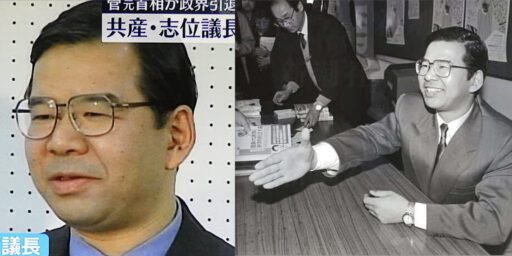
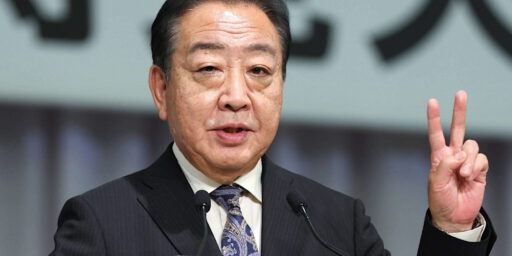

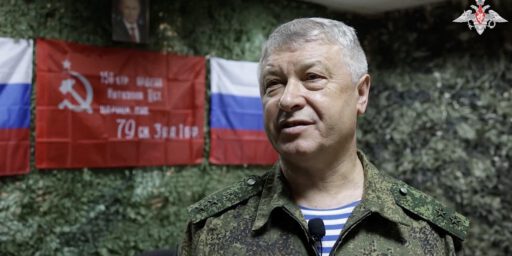
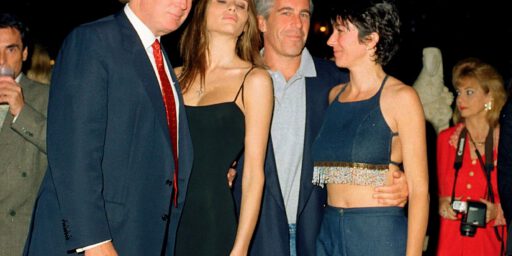


大嫌い--512x256.jpg)
